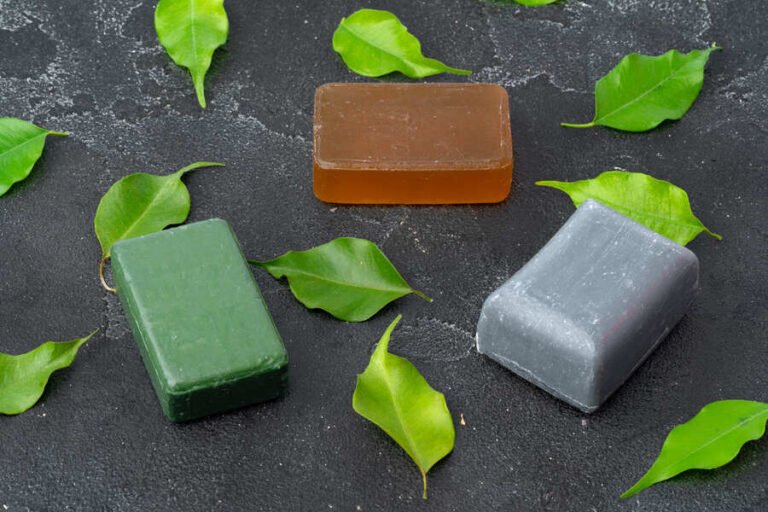Are you feeling overwhelmed by the retinol vs. collagen debate? Don't worry, we've got you covered.
In this article, we'll break down the differences and similarities between these two powerhouse skincare ingredients.
You'll learn how retinol promotes collagen production and fights signs of aging, while collagen keeps your skin firm and hydrated.
By understanding their unique properties, you'll be able to choose the best ingredient for your skin type.
So, let's dive in and discover everything you need to know about retinol vs. collagen!
Key Takeaways
- Retinol is vitamin A in its purest form and is known for its anti-aging properties.
- It helps reduce fine lines, wrinkles, hyperpigmentation, and blackheads.
- Retinol promotes collagen production and cell turnover for brighter and smoother skin.
- Collagen is an integral structural protein that provides natural skin elasticity and a healthy look. It helps slow skin aging and reduces the appearance of wrinkles and sagging skin.
The Science Behind Retinol and Collagen
In this article, you'll learn about the science behind retinol and collagen.
These two ingredients play a crucial role in reducing hyperpigmentation and improving skin texture.
Retinol, which is a form of vitamin A, has the ability to penetrate the skin's dermis and stimulate collagen production. This collagen production helps in reducing hyperpigmentation, such as dark spots and uneven skin tone. Additionally, retinol promotes cell turnover and improves skin texture, resulting in smoother and more radiant skin.
On the other hand, collagen is a structural protein that provides natural skin elasticity and a healthy look. By reintroducing collagen into the skin, it helps maintain firmness and improves the skin's texture, making it appear more youthful and plump.
Both retinol and collagen are effective in addressing hyperpigmentation and improving skin texture, making them valuable ingredients in your skincare routine.
Benefits of Retinol for Aging Skin
You'll be amazed by the benefits retinol offers for your aging skin.
When it comes to combatting acne and hyperpigmentation, retinol outshines collagen.
Retinol works by penetrating deep into the skin's dermis, stimulating collagen production and promoting cell turnover. This helps reduce fine lines, wrinkles, and hyperpigmentation, giving you a brighter and smoother complexion.
Retinol's ability to unclog pores and regulate oil production also makes it effective in clearing acne.
On the other hand, collagen primarily provides hydration and nourishment to the skin's surface, making it more suitable for younger skin without visible signs of aging.
How Collagen Supports Skin Health
Collagen's role in supporting your skin health is crucial for maintaining its elasticity and overall vitality. Here are three reasons why collagen is important in skincare and how it benefits your skin:
- Enhances Youthful Appearance: Collagen helps slow down the aging process by maintaining firmness and elasticity in the skin. It reduces the appearance of wrinkles, fine lines, and sagging skin, giving you a more youthful and refreshed look.
- Improves Skin Texture: Collagen supports overall skin health by improving its texture. It provides hydration, keeping your skin moisturized and radiant. Hydrated skin appears plumper and more supple, creating a smoother and more even complexion.
- Supports Skin Vitality: Lower collagen production can result in dry skin. By reintroducing collagen into your skincare routine, you can keep your skin hydrated and nourished. This supports its overall vitality, making it look healthier and more vibrant.
Exploring the benefits of collagen for youthful skin is essential for maintaining a healthy and radiant complexion. Incorporating collagen into your skincare routine can help you achieve and maintain youthful-looking skin.
Choosing the Right Ingredient for Your Skin Type
If you have oily skin, retinol may be a better choice for you due to its ability to control sebum production and prevent acne. Retinol is known for its anti-aging properties and its effectiveness in reducing fine lines, wrinkles, hyperpigmentation, and blackheads. It also helps retain skin elasticity and promotes cell turnover for brighter and smoother skin.
On the other hand, collagen is beneficial for younger skin without visible aging signs and is particularly useful for hormonal acne and fading acne scars. Collagen provides hydration and nourishment to the skin, improving its texture and overall health.
Both collagen and retinol can be incorporated into a skincare routine for optimal results. However, it's important to choose the right ingredient based on your skin type and concerns.
Incorporating Retinol and Collagen Into Your Skincare Routine
To effectively incorporate retinol and collagen into your skincare routine, here are some key points to consider:
- The differences between retinol and collagen for acne treatment:
- Retinol helps clear acne by unclogging pores and reducing excess oil production.
- Collagen provides hydration and nourishment to the skin, helping to improve its texture and reduce inflammation.
- The role of retinol and collagen in maintaining skin elasticity:
- Retinol stimulates collagen production and cell turnover, which helps to maintain skin elasticity and reduce the appearance of fine lines and wrinkles.
- Collagen, being a structural protein, naturally provides skin elasticity and a healthy look.
Maximizing the Effects of Retinol and Collagen
To maximize the effects of retinol and collagen, combine them in your skincare routine.
While retinol and collagen both work to improve the appearance of wrinkles and acne, they've different properties and functions. Retinol, a form of vitamin A, stimulates collagen production and cell turnover, resulting in brighter and smoother skin. It's more potent and yields better long-term results, making it ideal for mature skin with visible signs of aging and oily skin prone to acne.
On the other hand, collagen is a milder ingredient that provides hydration and maintains firmness and elasticity.
To make the most of retinol and collagen, start with a low concentration of retinol and gradually increase it. Apply collagen before moisturizer for optimal absorption. Remember to always wear sunscreen after using retinol to protect your skin.
Frequently Asked Questions
Can Retinol and Collagen Be Used Together in a Skincare Routine?
Yes, retinol and collagen can be used together in a skincare routine. Combining them offers multiple benefits, such as promoting collagen production and reducing signs of aging. To incorporate them, start with retinol before collagen and follow with moisturizer.
Which Ingredient Is More Suitable for Oily or Acne-Prone Skin?
For oily or acne-prone skin, retinol is a great choice. It helps control sebum production, unclogs pores, and reduces acne. Look for retinol alternatives in skincare products to find the right one for you.
Are There Any Side Effects or Risks Associated With Using Retinol or Collagen?
There are potential long-term effects associated with using retinol or collagen. It is important to follow recommended usage guidelines to minimize risks. Consult with a dermatologist for personalized advice.
Can Retinol or Collagen Be Used During Pregnancy or While Breastfeeding?
During pregnancy or breastfeeding, it is best to avoid retinol due to potential risks to the baby's health. Collagen, on the other hand, is considered safe to use during this time.
How Long Does It Take to See Results From Using Retinol or Collagen?
Using retinol or collagen in your skincare routine can yield visible results, but the time frame varies. Retinol can show improvements in as little as 4-6 weeks, while collagen may take longer, around 8-12 weeks.
Conclusion
In conclusion, when it comes to retinol vs. collagen, both ingredients offer unique benefits for your skin.
Retinol, with its anti-aging properties, stimulates collagen production and reduces fine lines and wrinkles.
Collagen, on the other hand, improves skin elasticity and hydration, giving you a more youthful and plump appearance.
The key is to choose the right ingredient for your skin type and concerns.
By incorporating retinol and collagen into your skincare routine, you can maximize their effects and achieve healthier, more radiant skin.
So, embrace the power of retinol and collagen and enjoy the beautiful results they can bring!







